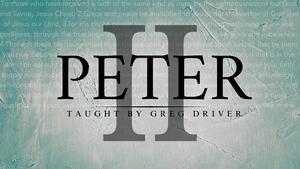I would like to know what you believe the Bible teaches on sacraments and magisterium?
It’s always best to agree on a definition of terms before discussing an issue. From its Latin roots the word “sacrament” can mean an oath, or pledge. From its French roots, it can mean sacred, or consecrated. Since both views are evident in the way sacraments have been used historically in the church, perhaps the fairest definition of sacrament used in a church context is “a visible sign of an inward grace.” It is God’s grace that consecrates us, or sets us apart, and sacraments are a visible, outward reminder or sign of God's grace.
Sacraments are rightly viewed as having been instituted by the Lord Jesus. According to most Protestants, Scripture teaches the Lord instituted only two sacraments: baptism and the Lord's Supper. The Catholic and Greek Orthodox churches believe there are seven sacraments: baptism, confirmation, the Lord’s supper, matrimony, penance, holy orders, and extreme unction.
We agree with the Biblical view that baptism and the Lord’s supper are the only two sacraments given by Jesus to the Church. We believe this view is substantiated by Scripture in that Jesus commanded believers to be baptized (Matthew 28:19) and to celebrate the Lord’s supper in remembrance of Him (Luke 22:19) but made no command or even mention of the remaining sacraments practiced by the Catholic Church.
Scripture is also very clear that these two sacraments are symbolic, visible signs of an inward grace. That is to say, these sacraments themselves do not actually confer grace; they represent the grace already made available to believers. Consequently, sacraments bear no relationship to our salvation. For example, being baptized does not make one a Christian, and conversely failing to be baptized does not invalidate a person's faith or salvation.
Our clearest evidence of this Biblical truth is seen in the experience of the thief on the cross. He was not baptized nor did he participate in communion, yet the Lord said he would be with Him in Paradise that day. Also, if you review the circumstances of every person in the New Testament who is credited with salvation by faith in Christ, each person is shown to confess belief in Christ before they are baptized. Therefore, Scripture makes clear that the sacrament of Baptism follows conversion and salvation and never precedes it nor accomplishes it.
As for the Lord’s supper, Jesus makes it clear that this was to be done in remembrance of Him, just as the Jews had been commanded to celebrate Passover as a remembrance of the day the Lord passed over their first born while still in Egypt. Nowhere in Scripture are we told we must partake of the Lord’s supper to be saved, nor does Scripture describe any imparting of additional grace as a result of our participation in it (other than the general blessing God assigns to acts of obedience).
Having said that, We also believe Christians should be baptized and should observe the Lord’s supper, because Jesus commanded us to do so. These actions demonstrate to the world that God has set us apart, that we are His. They also cause us to remember what the Lord has done for us on the cross.
Regarding magisterium, we assume you are using the term to refer to the Catholic church’s (self-proclaimed) inerrancy in teaching. There can be no man-made institution which is inerrant in the view of Scripture, since the Biblie teaches that all men comprehend God's truth imperfectly in our present sinful condition (1Cor 13:12).
The Catholic church in the Council of Trent declared that sacraments are necessary for salvation, but as we discussed above, Scripture does not agree with this view, as the Lord did not command believers to observe the other five sacraments (matrimony, penance, holy orders, and extreme unction). Furthermore, the sacraments are never tied to our salvation in any way (except that they may follow salvation). Consequently, since the Catholic church's teaching on sacraments is inconsistent with Scripture, this demonstrates that the doctrine of magisterium is also false (i.e., the Catholic church does make mistakes).
Scripture quotations taken from the (NASB®) New American Standard Bible®, Copyright © 1995, 2020 by The Lockman Foundation. Used by permission. All rights reserved. www.lockman.org





